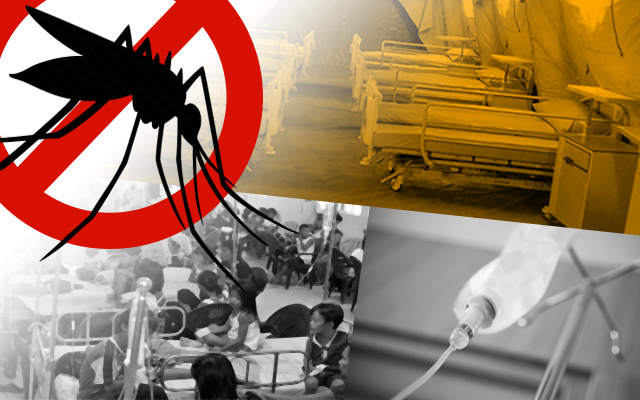BAGUIO CITY – Typhoid or paratyphoid fever cases in the region decreased by eighteen percent for the first semester of this year compared to the same period last year following the recording of some seven hundred twenty typhoid cases this year as compared to the registered eight hundred seventy four cases during the same reckoning period last year.
Geeny Anne Austria, Nurse V of the Cordillera office of the Department of Health (DOH-CAR) regional epidemiology and surveillance unit, said that the typhoid cases were monitored by the different units that are distributed in the different parts of the region to gather data on the prevailing potential diseases in the places around the Cordillera.
Based on the DOH-CAR RESU data, the typhoid or paratyphoid fever cases came from Benguet that registered 249 cases or 34.6 percent of the total number of cases, Kalinga with 122 cases or 16.9 percent of the total recorded cases, Mountain Province – 95 or 13.2 percent, Apayao – 80 cases or 11.1 percent, Ifugao – 66 or 9.2 percent, Baguio City – 54 or 7.5 percent, Abra – 31 or 4.3 percent and non-CAR provinces – 2 cases or 3.2 percent.
For the first semester of this year, Austria revealed that there were no typhoid-related deaths that were recorded compared to the single typhoid-related death that was reported during the same period last year.
Of the total number of recorded typhoid cases, there were some 369 females who were affected with the illness representing 51.3 percent of the total typhoid fever cases recorded and that the age range of all the affected individuals were from 13 days old to 98 years old with a median pegged at 23 years old.
Austria added there were clustering of typhoid fever cases that were recorded by the agency in Apayao, Benguet and Mountain Province during the first semester of this year but efforts were done by the concerned health authorities to control the situation in the said areas through the provision of medication among other prescribed interventions to prevent the possible occurrence of outbreaks in the said places.
Typhoid fever is a systematic bacterial disease with insidious onset of sustained fever, severe headache, malaise, anorexia, splenomegaly, non-productive cough in the early stage of the illness, and constipation more often than diarrhea in adults.
Health authorities explained that the infection is transmitted through the ingestion of contaminated feces, food, and water.
Among the suggested preventive measures include the practice of proper hand washing before food preparation, before eating, after using the toilet; maintain a high standard of personal hygiene; maintain rigorous standards of cleanliness in food preparation, food handling and food storage, especially salads and cold served foods and report all diarrheal cases within increasing trend or clustering to the different epidemiology surveillance units in their areas.
The DOH-CAR RESU continues to intensify the monitoring of typhoid cases in the region, especially in the places that reported clustering of cases, to ascertain the implementation of the needed intervention to guarantee the immediate medical attention that will be provided with the afflicted persons.
By Dexter A. See













